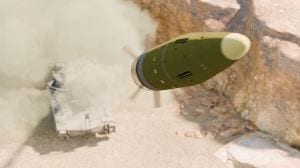Ghazi Yawar will be next Iraq President
Iraqi leaders cut a face-saving deal on Tuesday with the US and UN on a President and government to lead the country out of occupation. An 1...

Iraqi leaders cut a face-saving deal on Tuesday with the US and UN on a President and government to lead the country out of occupation. An 11th-hour compromise saw Washington’s choice of President make way for tribal chief Ghazi Yawar. He was then sworn in with an interim Cabinet of technocrats in a televised ceremony rich in symbolism at a palace complex built by Saddam Hussein.
Meanwhile, a car bomb tore through the offices of a Kurdish political party, killing and wounding several people. Several rockets also landed around the US compound wounding one Iraqi. And a suicide car bomber killed 11 Iraqis outside a US base near Baghdad.
Yawar called for the UN to give Iraq ‘‘full sovereignty’’ when the US-led occupation ends on June 30.
After two days of confrontation, the US and UN envoy Lakhdar Brahimi accepted Yawar as head of state after their preferred candidate, Adnan Pachachi, turned down the job. But in return, the Iraqi Governing Council agreed to dissolve itself with immediate effect and accepted a Cabinet line-up.
US President George W. Bush’s National Security Adviser Condoleezza Rice denied numerous Iraqi accounts that Washington had pushed Pachachi for President and said the US was very pleased with a ‘‘terrific list’’ of new leaders.
Brahimi, addressing Iraq’s new leaders, said it was the ‘‘first step on a road that will no doubt be long and difficult’’ and that Iraqis were looking forward to a fresh start and wanted to put the wars and hardships of the Saddam years behind them.
In a face-saving manoeuvre, the 22-member Governing Council initially dropped its objection to Pachachi. Then, within minutes, the 81-year-old former foreign minister renounced the post and Brahimi declared that Yawar would become head of state.
Officials then announced that the Council, whose members US officials had accused of trying to cling to power by claiming positions in the new government, was being wound up. Allawi, the Shi’ite former exile with close links to the CIA and whom the Council nominated as PM on Friday, then announced a government that included only two Council members.
After a Sunni cleric chanted a recitation from the Koran offering advice on wise leadership, the new administration was sworn in at a building in the Green Zone compound. Barring Brahimi, there was not a foreign face to be seen on the podium, and barely a scrap of English spoken, in a carefully managed event clearly aimed at demonstrating Iraqi independence.
Reflecting the balance among Iraq’s ethnic and religious groups, two vice-presidents — one a Shi’ite Muslim, the other a Kurd — were appointed to serve under Yawar. Of 26 ministers and five junior ministers, five are women.
Yawar, 46, is a US-trained engineer from Mosul and a chief of one of the biggest tribes in Iraq and beyond its borders. He enjoys support from Kurds and Shi’ites and worked for many years in Saudi Arabia. — (Reuters)





- 01
- 02
- 03
- 04
- 05


























